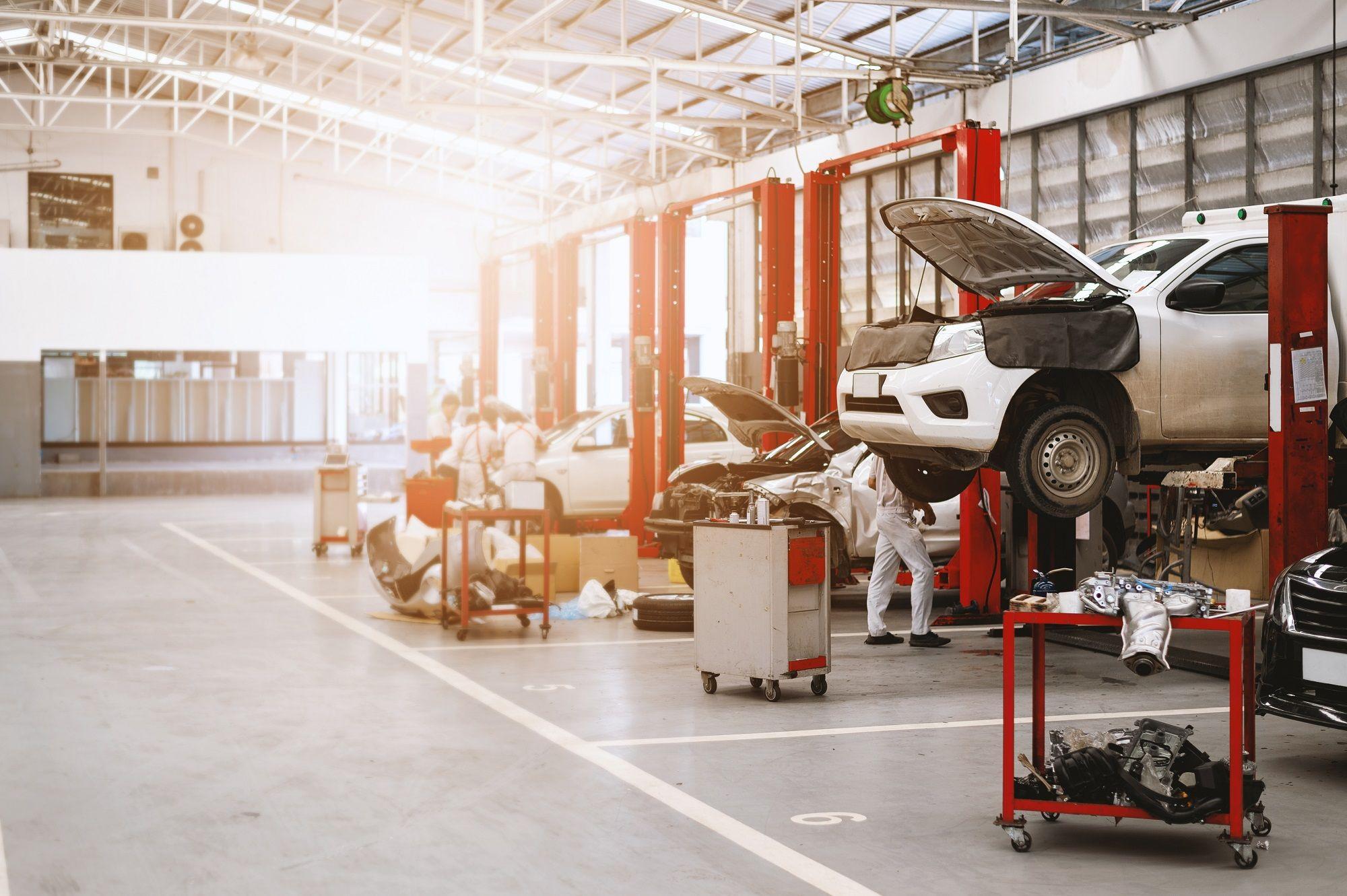Automotive Garage Equipment Market Segmentation by Garage Type: Independent vs. Authorized Service Centers

The Automotive Garage Equipment Market is increasingly being shaped by the type of service provider—independent garages and authorized service centers. Each segment has distinct equipment needs, purchasing behavior, and customer expectations. As vehicles become more advanced and diversified, the contrast between these two garage types has intensified, influencing the equipment demand across the globe.
This article explores the market segmentation by garage type, highlighting the operational models, equipment preferences, growth factors, and challenges faced by both independent and authorized service providers.
Overview of Garage Types
1. Independent Garages
These are privately owned workshops not affiliated with vehicle manufacturers (OEMs). They offer a wide range of services and cater to various brands and models.
2. Authorized Service Centers
These are garages operated or approved by vehicle OEMs. They follow strict guidelines set by the brand and typically service only vehicles of that specific make.
Equipment Requirements: A Comparative Look
| Feature | Independent Garages | Authorized Service Centers |
|---|---|---|
| Brand Coverage | Multi-brand | Single-brand or OEM-specific |
| Diagnostic Tools | Universal scanners & software | OEM-specific diagnostic tools |
| Vehicle Lifts | Standard and mid-range lifts | Premium lifts with brand-matching specs |
| Emission Testers | Regulatory-compliant, cost-effective | Compliant, brand-integrated |
| Repair Equipment | Versatile and modular | OEM-mandated and calibrated |
| Software Updates | Subscription-based, third-party | Direct from OEM, often pre-installed |
Independent Garages: Market Dynamics
Key Characteristics
-
Greater flexibility in services and pricing
-
Typically operate on a smaller budget
-
High reliance on aftermarket equipment suppliers
-
Often located in local neighborhoods or urban service zones
Growth Drivers
-
Rising vehicle age in developing countries increases the need for independent services
-
Growing consumer preference for cost-effective, multi-brand servicing
-
Increased availability of universal diagnostic tools and affordable garage kits
Challenges
-
Limited access to OEM data and tools
-
Difficulties in servicing high-tech EVs and luxury cars
-
Need for continuous upskilling and tool upgrades
Emerging Trends
-
Adoption of refurbished or leased equipment
-
Mobile and home garage services gaining popularity
-
Rising interest in cloud-based diagnostics and service management
Authorized Service Centers: Market Dynamics
Key Characteristics
-
Operate under OEM quality and service protocols
-
Invest heavily in certified tools and brand-compliant equipment
-
Offer premium-priced services with brand trust
Growth Drivers
-
Expansion of dealership networks in emerging markets
-
Increasing demand for brand-compliant servicing, especially for warranty-covered vehicles
-
Integration of EV and ADAS (Advanced Driver-Assistance Systems) diagnostics
Challenges
-
High setup and equipment costs
-
Dependency on OEMs for upgrades and spare parts
-
Limited appeal to price-sensitive customers
Emerging Trends
-
Investment in AI-enabled diagnostics and predictive maintenance tools
-
Integrated service bays with IoT tools, real-time diagnostics, and cloud reporting
-
Brand loyalty programs and post-warranty service packages
Regional Variations
-
North America: Independent garages dominate rural and suburban areas, while urban centers host large authorized centers.
-
Europe: Strict emissions laws encourage both types to upgrade testing tools; OEM-affiliated centers have strong brand trust.
-
Asia-Pacific: Independent garages thrive due to cost sensitivity; however, OEMs are expanding branded service networks in major cities.
Strategic Implications for Equipment Manufacturers
To serve both garage types effectively, equipment manufacturers must tailor their product and service offerings accordingly:
For Independent Garages:
-
Modular and affordable equipment bundles
-
Multi-brand diagnostic support
-
Equipment financing or rental programs
For Authorized Service Centers:
-
OEM-compliant, precision-calibrated tools
-
Integrated software and update support
-
Training and certification services
Equipment makers can grow their footprint by offering hybrid product portfolios that balance cost, capability, and compliance.
Future Outlook: Convergence or Divergence?
While the Automotive Garage Equipment Market has clear segmentation, future dynamics may blur the lines:
-
Independent garages are investing in advanced diagnostics and digital tools to remain competitive.
-
Authorized centers may outsource minor or overflow services to qualified independents.
-
Both types are adopting smart workshop systems and digital service logs to meet modern customer expectations.
The common denominator is technology-driven service excellence, pushing both garage types toward innovation, training, and smart equipment adoption.
Conclusion
Segmentation by garage type reveals significant variations in how and why garages invest in automotive equipment. Independent garages focus on affordability and versatility, while authorized centers prioritize brand precision and compliance. As vehicle technology evolves, the Automotive Garage Equipment Market must continue offering adaptable solutions for both segments, ensuring safe, efficient, and up-to-date vehicle care across the board.
- Art
- Causes
- Crafts
- Dance
- Drinks
- Film
- Fitness
- Food
- Games
- Gardening
- Health
- Home
- Literature
- Music
- Networking
- Other
- Party
- Religion
- Shopping
- Sports
- Theater
- Wellness


